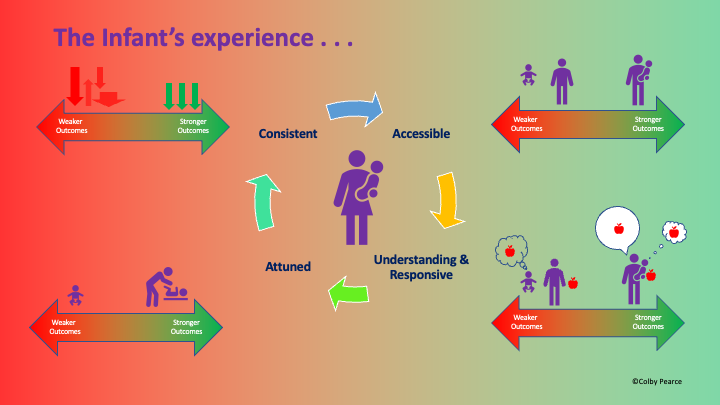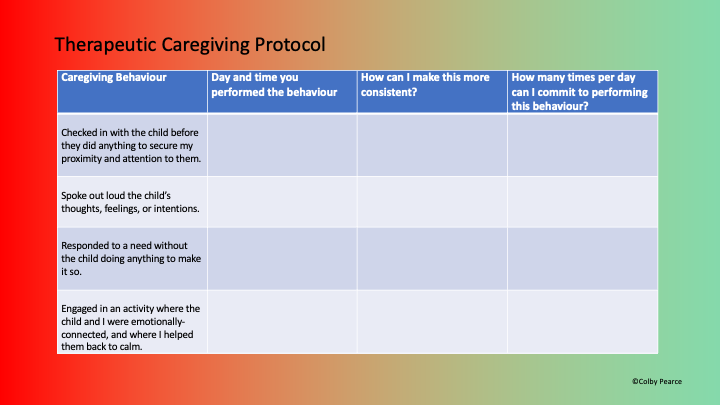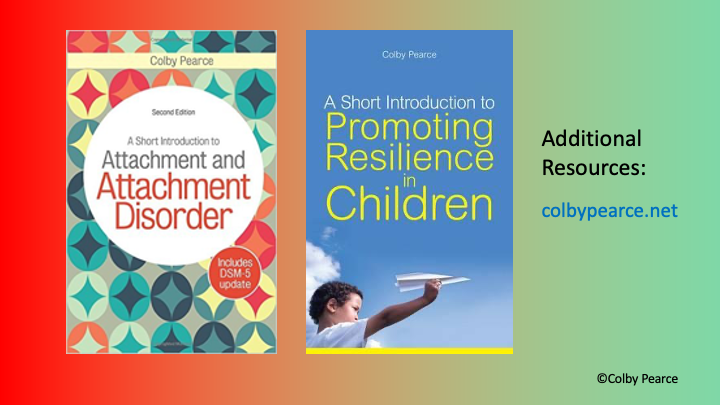
A final word: Consistency
We are probably all familiar with the saying: children need consistency. We know from the operant conditioning studies that consistency is optimal for learning; including learning about what can be expected of adults in a caregiving role. We also know from those studies that inconsistency is stressful. Inconsistent responsiveness leaves us unsure and heightened. Chronic inconsistency leaves the infant prone to hyperarousal and associated negative impacts on performance, wellbeing, and learning.
In considering one’s AURA, its impact is optimal when each aspect is performed consistently. Considered together with other concepts discussed in this presentation, we have another model for understanding what a therapeutic care environments looks like – The CARE Model (Pearce, 2016).

Thank you for your interest this self-paced module. In terms of where to from here, I encourage you to complete the monitoring protocol (see above) at the end of your handbook over the next week. I anticipate that you will find that you already perform most, if not all the caregiving behaviours I have referred to in this presentation. You are already making a positive contribution to the recovery of a child in your care who is recovering from a tough start to life. To maximise the impact of your endeavours, I recommend that you fine tune your delivery of reparative care in one or other or both of the following ways:
- Implement each caregiving behaviour consistently, at a daily rate that you can maintain over time;
- Slightly increase the number of times you implement one or more of the caregiving behaviours I have presented, to enrich your AURA and CARE.

Click here to purchase a PDF Handbook for this module.
